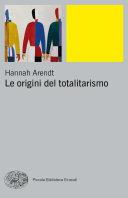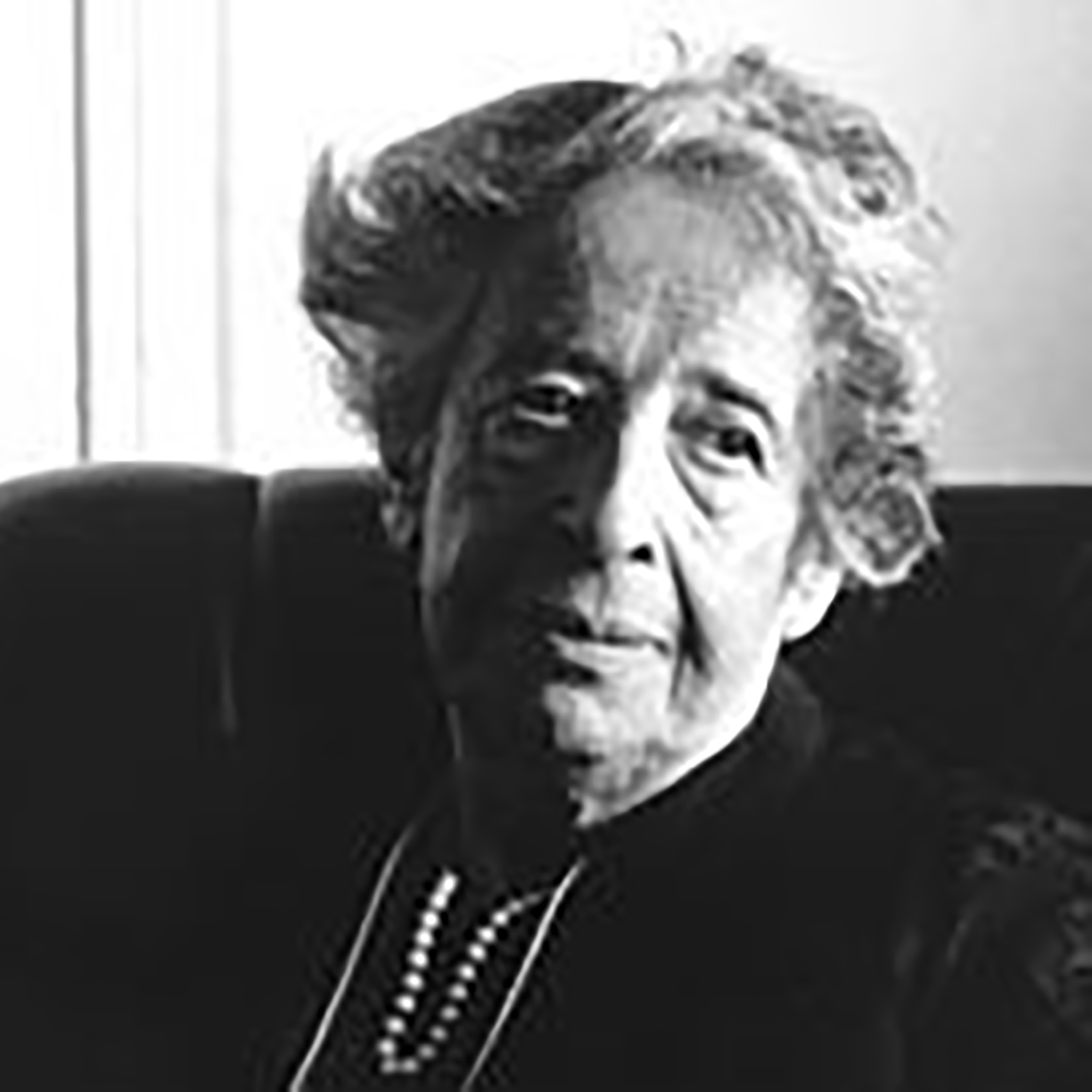Lavori

Le origini del totalitarismo
Hannah ArendtVita activa
Hannah ArendtHannah Arendt frasi celebri
Le origini del totalitarismo
Le origini del totalitarismo
Origine: Da Verità e politica, traduzione di Vincenzo Sorrentino, Bollati Boringhieri, Torino, 2004.
Tra passato e futuro
Frasi sul mondo di Hannah Arendt
Tra passato e futuro
Le origini del totalitarismo
Hannah Arendt Frasi e Citazioni
Le origini del totalitarismo
Le origini del totalitarismo
Le origini del totalitarismo
V, 31, p. 176
Vita activa
“Io non credo che possa esistere qualche processo di pensiero senza esperienze personali.”
Origine: Da La lingua materna, a cura di Alessandro Dal Lago, Mimesis, Milano, 1996.
Origine: Da La morale della storia, in Ebraismo e modernità, p. 119.
Origine: Da Sulla violenza, traduzione di Aldo Chiaruttini, Mondadori, 1971, p. 66.
Tra passato e futuro
Le origini del totalitarismo
Le origini del totalitarismo
V, 24, p. 135
Vita activa
The Human Condition
Le origini del totalitarismo
VI, 38, p. 212
Vita activa
Origine: Da La vita della mente, a cura di Alessandro Dal Lago, traduzione di Giorgio Zanetti, Ed. Il Mulino, 1987.
Origine: Da Riflessioni su Little Rock, in Responsabilità e giudizio, a cura di Jerome Kohn, traduzione di Davide Tarizzo, Einaudi, 2004, p. 174-175.
Hannah Arendt: Frasi in inglese
Preface to the first edition, written in the summer of 1950.
The Origins of Totalitarianism (1951)
Contesto: The totalitarian attempt at global conquest and total domination has been the destructive way out of all impasses. Its victory may coincide with the destruction of humanity; wherever it has ruled, it has begun to destroy the essence of man. Yet to turn our backs on the destructive forces of the century is of little avail.
The trouble is that our period has so strangely intertwined the good with the bad that without the imperialists' "expansion for expansion's sake," the world might never have become one; without the bourgeoisie's political device of "power for power's sake," the extent of human strength might never have been discovered; without the fictitious world of totalitarian movements, in which with unparalleled clarity the essential uncertainties of our time have been spelled out, we might have been driven to our doom without ever becoming aware of what has been happening.
And if it is true that in the final stages of totalitarianism an absolute evil appears (absolute because it can no longer be deduced from humanly comprehensible motives), it is also true that without it we might never have known the truly radical nature of Evil.
Part 3, Ch. 13, § 3.
Origine: On the subject the ideal subjects for a totalitarian authority. Source: The Origins of Totalitarianism, published in 1951. As quoted by Scroll Staff (December 04, 2017): Ideas in literature: Ten things Hannah Arendt said that are eerily relevant in today’s political times https://web.archive.org/web/20191001213756/https://scroll.in/article/856549/ten-things-hannah-arendt-said-that-are-eerily-relevant-in-todays-political-times. In: Scroll.in. Archived from the original https://scroll.in/article/856549/ten-things-hannah-arendt-said-that-are-eerily-relevant-in-todays-political-times on October 1, 2019.
Part 1, Ch. 1, § 1.
The Origins of Totalitarianism (1951)
Contesto: Persecution of powerless or power-losing groups may not be a very pleasant spectacle, but it does not spring from human meanness alone. What makes men obey or tolerate real power and, on the other hand, hate people who have wealth without power, is the rational instinct that power has a certain function and is of some general use. Even exploitation and oppression still make society work and establish some kind of order. Only wealth without power or aloofness without a policy are felt to be parasitical, useless, revolting, because such conditions cut all the threads which tie men together. Wealth which does not exploit lacks even the relationship which exists between exploiter and exploited; aloofness without policy does not imply even the minimum concern of the oppressor for the oppressed.
Hannah Arendt in Eichmann in Jerusalem (1963) epilogue.
Eichmann in Jerusalem (1963)
“It is, in fact, far easier to act under conditions of tyranny than it is to think.”
The Human Condition (1958).
Part 3, Ch. 12, § 3.
The Origins of Totalitarianism (1951)
Contesto: The concentration camps, by making death itself anonymous (making it impossible to find out whether a prisoner is dead or alive), robbed death of its meaning as the end of a fulfilled life. In a sense they took away the individual’s own death, proving that henceforth nothing belonged to him and he belonged to no one. His death merely set a seal on the fact that he had never existed.
Origine: On the subject “alternate facts”. Source: The Origins of Totalitarianism, published in 1951. As quoted by Scroll Staff (December 04, 2017): Ideas in literature: Ten things Hannah Arendt said that are eerily relevant in today’s political times https://web.archive.org/web/20191001213756/https://scroll.in/article/856549/ten-things-hannah-arendt-said-that-are-eerily-relevant-in-todays-political-times. In: Scroll.in. Archived from the original https://scroll.in/article/856549/ten-things-hannah-arendt-said-that-are-eerily-relevant-in-todays-political-times on October 1, 2019.
Part 3, Ch. 1 § 1.
The Origins of Totalitarianism (1951)
either a single source or a single ruler.
Origine: The Life of the Mind (1971/1978), p. 70.
Part 3, Ch. 2 The Totalitarian Movement, page 80 https://books.google.de/books?id=I0pVKCVM4TQC&pg=PT104&dq=A+mixture+of+gullibility+and+cynicism+had+been+an+outstanding+characteristic+of+mob+mentality+before+it+became+an+everyday+phenomenon+of+masses.&hl=de&sa=X&redir_esc=y#v=onepage&q=A%20mixture%20of%20gullibility%20and%20cynicism%20had%20been%20an%20outstanding%20characteristic%20of%20mob%20mentality%20before%20it%20became%20an%20everyday%20phenomenon%20of%20masses.&f=false
The Origins of Totalitarianism (1951)
Contesto: A mixture of gullibility and cynicism had been an outstanding characteristic of mob mentality before it became an everyday phenomenon of masses. In an ever-changing, incomprehensible, world the masses had reached the point where they would, at the same time, believe everything and nothing, think that everything is possible and that nothing was true. The mixture in itself was remarkable enough, because it spelled the end of the illusion that gullibility was a weakness of unsuspecting primitive souls and cynism the vice of superior and refined minds. Mass propaganda discovered that its audience was ready at all times to believe the worst, no matter how absurd, and did not particularly object to being deceived because it held every statement to be a lie anyhow. The totalitarian mass leaders based their propaganda on the correct psychological assumption that, under such conditions, one could make people believe the most fantastic statements one day, and trust if the next day they were given irrefutable proof of their falsehood, they would take refuge in cynicism; instead of deserting the leaders who had lied to them, they would protest that they had known all along the statement was a lie and would admire the leaders for their superior tactical cleverness.
Letter to James Baldwin (21 November 1962).
General sources
Contesto: In politics, love is a stranger, and when it intrudes upon it nothing is being achieved except hypocrisy. All the characteristics you stress in the Negro people: their beauty, their capacity for joy, their warmth, and their humanity, are well-known characteristics of all oppressed people. They grow out of suffering and they are the proudest possession of all pariahs. Unfortunately, they have never survived the hour of liberation by even five minutes. Hatred and love belong together, and they are both destructive; you can afford them only in private and, as a people, only so long as you are not free.
